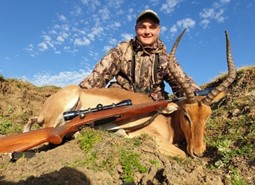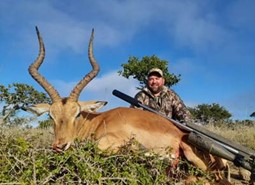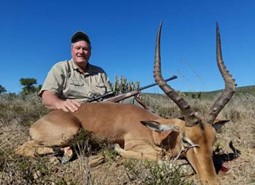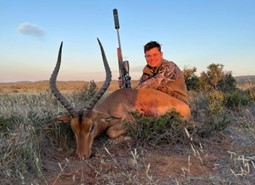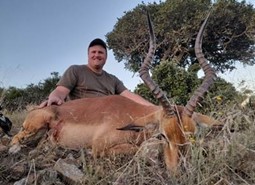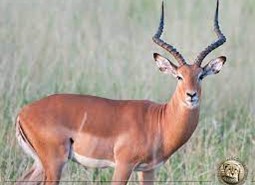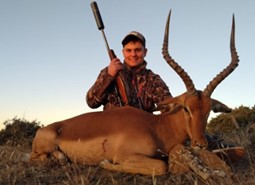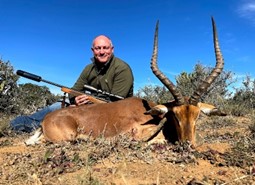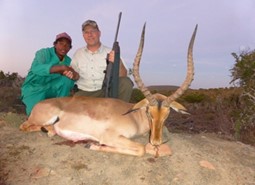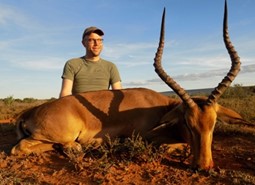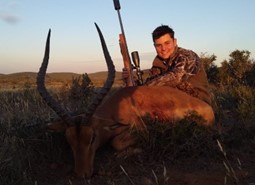As a hunter of European game, I thoroughly enjoyed Owens personal and patient introduction to hunting in Africa. The first class accommodation, the wonderful cooking and our gracious and humorous hosts combined to a wonderful and authentic experience. I can wholeheartedly and without reservation recommend it to anyone.
- About
- Accommodation
- Hunting
-
Species
Our Species Impala Kudu Waterbuck Springbuck Blesbuck Warthog Bontebok Bushbuck Caracal Duiker (Grey) Baboon Fallow Deer Giraffe Red Hartebeest Jackal Nyala Ostrich Mountain Reedbuck Roan Antelope Steenbuck Wildebeest Blue Barbary Sheep Buffalo Bushpig Eland Gemsbuck Grysbuck Hippopotamus Klipspringer Lechwe Oribi Sable Wildebeest - Black Zebra - Burchells Reebuck Common Grey Rhebok
- Non-hunting Activites
- Packages
- Gallery
- Contact us
